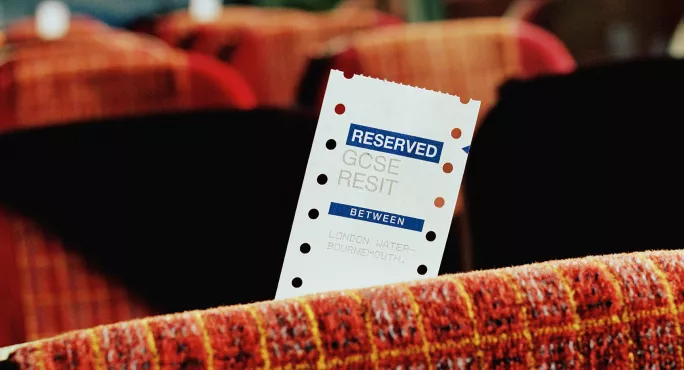Walker: Drop GCSE resits rule to boost ‘maths to 18’ plan

Expecting pupils to repeatedly resit GCSE maths unsuccessfully is demoralising for students and a questionable use of teaching resources, a former schools minister has said.
Robin Walker, the chairman of the Commons Education Select Committee, said that the government should look at creating a new functional numeracy qualification as part of its plan to get all young people studying the subject to 18.
This is one of the recommendations in a new committee report, which also urges the government to pause its shake-up of post-16 qualifications or risk worsening the UK’s skills shortages.
The report, published today, includes recommendations on prime minister Rishi Sunak’s goal of having all pupils studying maths up to the age of 18.
- Background: Experts advising on Sunak’s ‘maths to 18’ plan named
- Maths plan: Not enough teachers for ‘maths to 18’ plan, PM admits
- Sunak: Prime minister to set out ‘maths to 18’ plan
It warns that the government will need to address the recruitment and retention of specialist maths teachers, and build a stronger foundation of numeracy and mathematical skills and knowledge at GCSE and below.
It adds: “Addressing these issues is a pre-requisite to ensuring the success of compulsory maths up to 18, and the department must work with the sector to clearly set out how it plans to do so.”
Speaking to Tes, Mr Walker said: “One thing that has come through in evidence at our committee is that expecting students to repeatedly resit GCSE maths until they get a grade 4 takes up a lot of resource.”
The former minister said this was also “demoralising” for the young people involved.
The MPs’ report says that the government should now consider how focused qualifications in practical numeracy and financial skills could be used to broaden the reach of the “maths to 18” plan.
Mr Walker said: “One of the people giving evidence to our committee said that the ideal situation would be a qualification that everyone can pass and which is valued by employers, well that of course is difficult to achieve...but we think rather than everyone who does not get a grade 4 resitting GCSE maths, the government could look at the use of a qualification in numeracy rather than maths.”
He added: “This could satisfy employers that someone has a level of numeracy which would allow them to work in a retail environment where they are not going to be called upon to use algebra but a qualification which allows them to demonstrate they have functional skills in numeracy.”
The MPs’ report says: “An A-level maths qualification will evidently not be appropriate for all students. A level 3 core maths qualification provides applied, real-world maths skills, including financial skills, and we believe that more students should have the opportunity to study this qualification. The government should consider a qualification or accreditation in numeracy for those who currently miss out on level 4 grades as an alternative to repeated retakes of GCSE maths.”
It said that of those students who did not achieve level 2 maths by age 16, just under one in three (31 per cent) of those doing resits had managed to achieve it by the age of 19.
The report concludes: “In our evidence session examining the government’s proposals for compulsory maths up to 18, we heard that learners are ‘doing GCSE resits again and again’, which can result in alienation and disengagement.”
The MPs report also raises concerns that plans to withdraw funding from tried and tested applied general qualifications (AGQs) before there is time to assess the rollout of new T levels could narrow student choice.
Concerns have been raised over T levels since they were first introduced in 2019 as technical alternatives to A levels, according to the group of cross-party MPs.
Ministers are being urged to place a moratorium on the defunding of AGQs until there is “robust evidence” that T levels are effective at helping students progress, promoting social mobility and meeting industry needs.
You need a Tes subscription to read this article
Subscribe now to read this article and get other subscriber-only content:
- Unlimited access to all Tes magazine content
- Exclusive subscriber-only stories
- Award-winning email newsletters
Already a subscriber? Log in
You need a subscription to read this article
Subscribe now to read this article and get other subscriber-only content, including:
- Unlimited access to all Tes magazine content
- Exclusive subscriber-only stories
- Award-winning email newsletters
topics in this article



